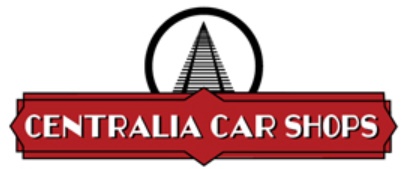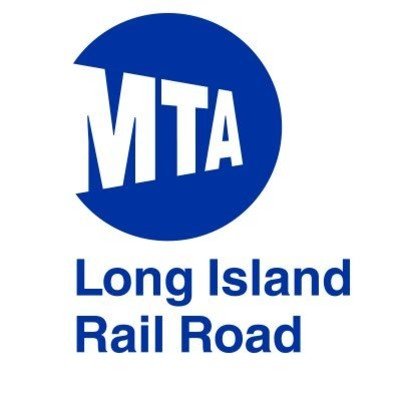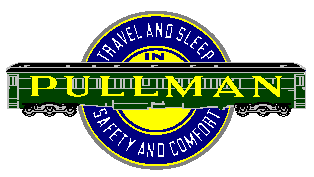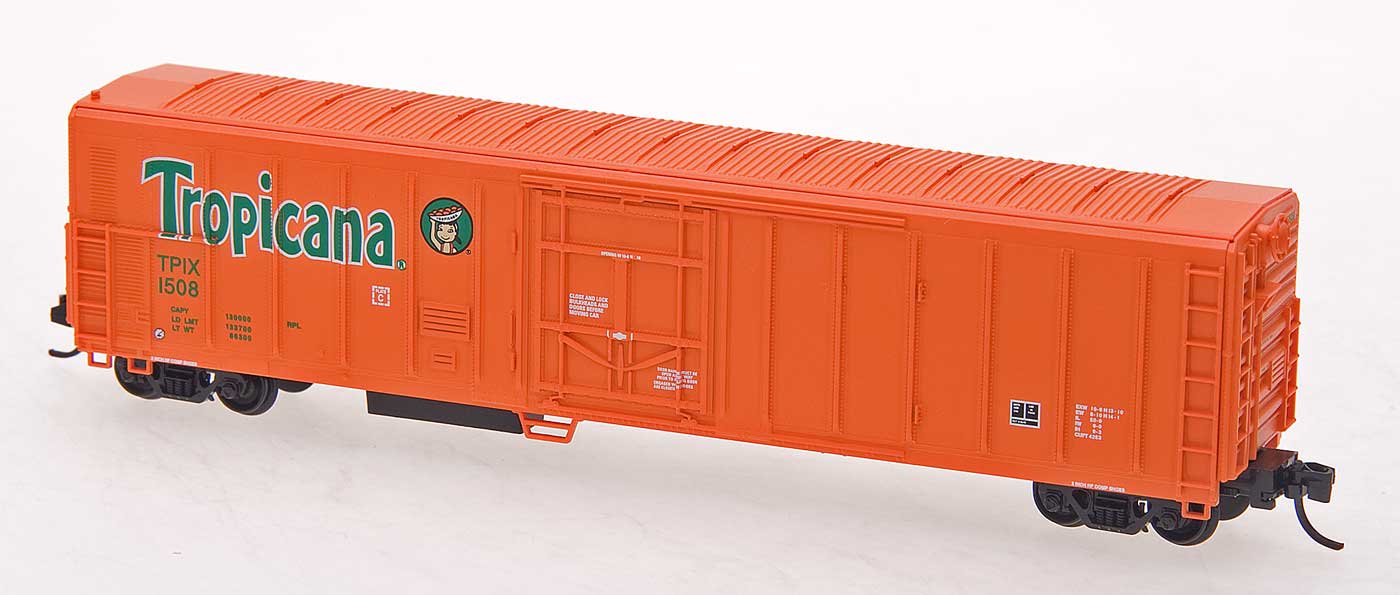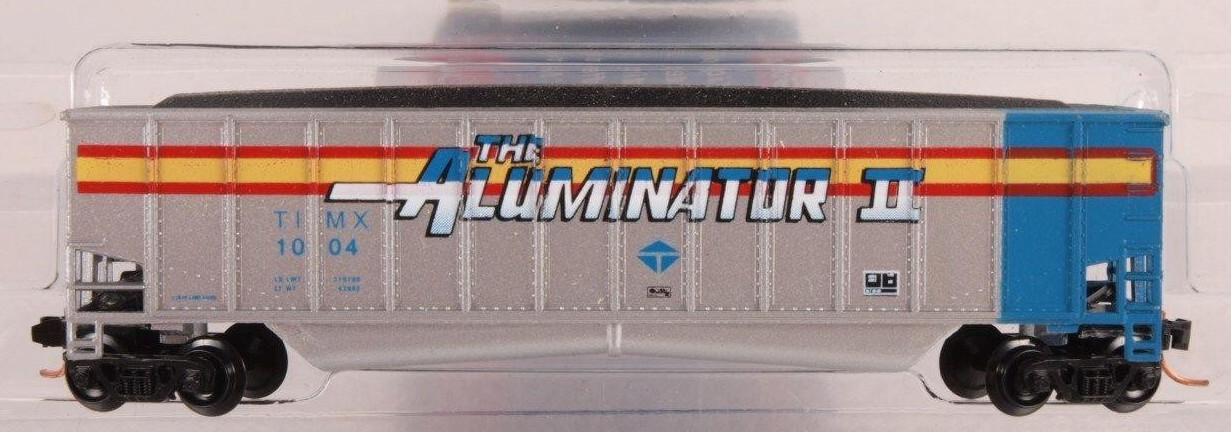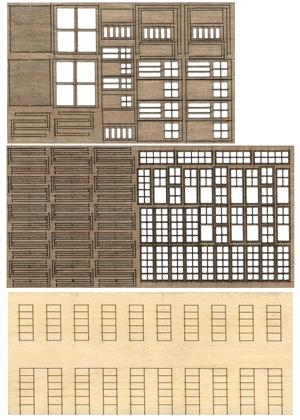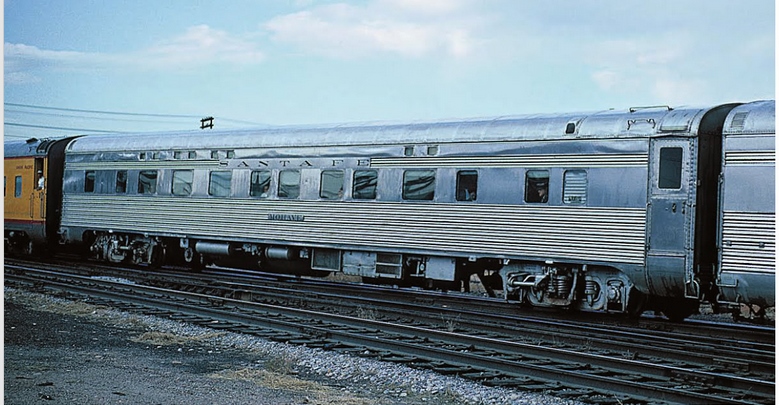Prototype History: The "Imperial" 4-4-2s are among the most popular designs in Lightweight passenger service. They have an excellent array of middle to top level accommodations, with 4 double bedrooms, 4 comfortable compartments and 2 drawing rooms.
The drawing rooms have evolved from the Heavyweight days. The restroom is arranged differently (note that most of the toilets are near the centerline of the car, where their chutes can clear the underbody gear mounted along the car edges.) In place of the section and sofa combo, a sofa and two armchairs provide day accommodations. At night, the sofa folds down into a traditional upper and lower. The third berth is a "Murphy bed" that folds down from a wall locker.
The compartments have a similar arrangement of sofa and chair; being, in effect, miniaturized drawing rooms. The bedrooms are similar again, with less floor space and no chair. The fundamental difference between a "single bedroom" and a "double bedroom" is that the single does not have an upper berth.
There are still a few shortcomings with this design. For example, the compartments and bedrooms still have the open toilets (postwar cars will have these enclosed in tiny restrooms). The compartments also have the prewar style small windows above the main windows. These were originally designed to give the upper berth a window view. However, in these cars, the berths are mounted laterally.
Still, these are excellent cars: requiring only detail refinements to achieve the long-sought perfection of the sleeping car. These versatile 4-4-2s are found on trains throughout the country.
The drawing rooms have evolved from the Heavyweight days. The restroom is arranged differently (note that most of the toilets are near the centerline of the car, where their chutes can clear the underbody gear mounted along the car edges.) In place of the section and sofa combo, a sofa and two armchairs provide day accommodations. At night, the sofa folds down into a traditional upper and lower. The third berth is a "Murphy bed" that folds down from a wall locker.
The compartments have a similar arrangement of sofa and chair; being, in effect, miniaturized drawing rooms. The bedrooms are similar again, with less floor space and no chair. The fundamental difference between a "single bedroom" and a "double bedroom" is that the single does not have an upper berth.
There are still a few shortcomings with this design. For example, the compartments and bedrooms still have the open toilets (postwar cars will have these enclosed in tiny restrooms). The compartments also have the prewar style small windows above the main windows. These were originally designed to give the upper berth a window view. However, in these cars, the berths are mounted laterally.
Still, these are excellent cars: requiring only detail refinements to achieve the long-sought perfection of the sleeping car. These versatile 4-4-2s are found on trains throughout the country.
Road Name History: The LIRR was established in 1834 as part of a ferry-rail-ferry-rail route linking New York City with Boston. Within a few years, an all-rail route (later becoming the New Haven) was completed and LIRR’s through traffic evaporated. In the 1880s, the LIRR absorbed all of the other railroads on the island and settled in to a life of dependable local service. This included what may have been the first WOFC (wagon on flat car) service.
In 1900, Pennsylvania Railroad bought control of the LIRR and began incorporating it into their plans for Penn Station in Manhattan. This included electrifying certain routes on the west end of the LIRR with 600 volt DC third rail. The steam locomotive fleet began to take on a distinctly Pennsy look. Over the next 20 years, Long Island began to develop into a bedroom community for New York City and the LIRR stepped in to become the transport of choice for tens of thousands of daily commuters.
However, running commuter trains is an inherently dodgy business. It requires large investments in equipment and facilities that are used for two brief windows of time during the day, then sit idle for the rest of the time. The problem was made worse by the state of New York who froze ticket prices at the end of the First World War and left them there until after the Second World War. The LIRR slipped into bankruptcy. Parent PRR and the state came to an agreement. New York’s onerous property taxes were relaxed, ticket fares were allowed to rise and PRR began modernizing the LIRR. Steam was replaced with diesels primarily from Alco and Fairbanks-Morse. EMD’s joined the party in 1976.
In 1966, a state agency (later called the Metropolitan Transportation Authority) bought control of the LIRR from the Pennsylvania Railroad. Under state control, the LIRR gradually lost interest in their freight service and in 1997 freight operations were turned over to the New York & Atlantic Railway. The LIRR remains today America’s largest passenger hauler, moving over a third of a million passengers on a typical weekday.
In 1900, Pennsylvania Railroad bought control of the LIRR and began incorporating it into their plans for Penn Station in Manhattan. This included electrifying certain routes on the west end of the LIRR with 600 volt DC third rail. The steam locomotive fleet began to take on a distinctly Pennsy look. Over the next 20 years, Long Island began to develop into a bedroom community for New York City and the LIRR stepped in to become the transport of choice for tens of thousands of daily commuters.
However, running commuter trains is an inherently dodgy business. It requires large investments in equipment and facilities that are used for two brief windows of time during the day, then sit idle for the rest of the time. The problem was made worse by the state of New York who froze ticket prices at the end of the First World War and left them there until after the Second World War. The LIRR slipped into bankruptcy. Parent PRR and the state came to an agreement. New York’s onerous property taxes were relaxed, ticket fares were allowed to rise and PRR began modernizing the LIRR. Steam was replaced with diesels primarily from Alco and Fairbanks-Morse. EMD’s joined the party in 1976.
In 1966, a state agency (later called the Metropolitan Transportation Authority) bought control of the LIRR from the Pennsylvania Railroad. Under state control, the LIRR gradually lost interest in their freight service and in 1997 freight operations were turned over to the New York & Atlantic Railway. The LIRR remains today America’s largest passenger hauler, moving over a third of a million passengers on a typical weekday.
Brand/Importer Information: Centralia Car Shops is an N-Scale manufacturer based in Des Plaines Illinois. It is a wholly owned subsidiary of Des Plaines hobbies. Des Plaines Hobbies was founded by Ron Sebastian in 1984. Centralia subcontracts its manufacturing to InterMountain and 'piggy-backs' the production runs onto the InterMountain runs using the same factories in China as InterMountain. Shipping from factories in China is also coordinated with InterMountain as is distribution to retailers.
Des Plaines Hobbies is a old fashioned hobbyshop with an emphasis on Model Railroading. It was started 33 years ago when you could purchase a tube of glue and sticks of balsa wood. That is still true today, although we have added a few items. About 20 years ago we ventured into some light manufacturing and are also home to Centralia Car Shops, S Scale America, and O Scale America lines of kits, decals and parts. Also along the way we have purchased a few small lines that we still offer such as Microscale's S Scale decal line and Mullet River Model Works HO and S lines.
Des Plaines Hobbies is located 3 1/2 miles north of O Hare International Airport at 1524 Lee/Mannheim (US 12-45). Pace buses conveniently run north and south on Lee/Mannheim from O Hare and the Des Plaines Metra station (1 mile north). For drivers, there is parking for a couple hundred cars out front and on the right side of the store. We are located on the south side of the Jewel food store under the red awning. Come for a visit. ADA restroom available. Coffee is usually hot, if not, ask and we will put a pot on.
Des Plaines Hobbies is a old fashioned hobbyshop with an emphasis on Model Railroading. It was started 33 years ago when you could purchase a tube of glue and sticks of balsa wood. That is still true today, although we have added a few items. About 20 years ago we ventured into some light manufacturing and are also home to Centralia Car Shops, S Scale America, and O Scale America lines of kits, decals and parts. Also along the way we have purchased a few small lines that we still offer such as Microscale's S Scale decal line and Mullet River Model Works HO and S lines.
Des Plaines Hobbies is located 3 1/2 miles north of O Hare International Airport at 1524 Lee/Mannheim (US 12-45). Pace buses conveniently run north and south on Lee/Mannheim from O Hare and the Des Plaines Metra station (1 mile north). For drivers, there is parking for a couple hundred cars out front and on the right side of the store. We are located on the south side of the Jewel food store under the red awning. Come for a visit. ADA restroom available. Coffee is usually hot, if not, ask and we will put a pot on.
Manufacturer Information: Centralia Car Shops is a small brand owned by Des Plaines Hobbies in Chicagoland and distributed by Intermountain Railways.
Here is what Des Plaines Hobbies say about themselves:
Des Plaines Hobbies is a old fashioned hobbyshop with an emphasis on Model Railroading. It was started 33 years ago when you could purchase a tube of glue and sticks of balsa wood. That is still true today, although we have added a few items. About 20 years ago we ventured into some light manufacturing and are also home to Centralia Car Shops, S Scale America, and O Scale America lines of kits, decals and parts. Also along the way we have purchased a few small lines that we still offer such as Microscale's S Scale decal line and Mullet River Model Works HO and S lines.
Here is what Des Plaines Hobbies say about themselves:
Des Plaines Hobbies is a old fashioned hobbyshop with an emphasis on Model Railroading. It was started 33 years ago when you could purchase a tube of glue and sticks of balsa wood. That is still true today, although we have added a few items. About 20 years ago we ventured into some light manufacturing and are also home to Centralia Car Shops, S Scale America, and O Scale America lines of kits, decals and parts. Also along the way we have purchased a few small lines that we still offer such as Microscale's S Scale decal line and Mullet River Model Works HO and S lines.
Item created by: CNW400 on 2020-12-02 10:48:18
If you see errors or missing data in this entry, please feel free to log in and edit it. Anyone with a Gmail account can log in instantly.
If you see errors or missing data in this entry, please feel free to log in and edit it. Anyone with a Gmail account can log in instantly.




